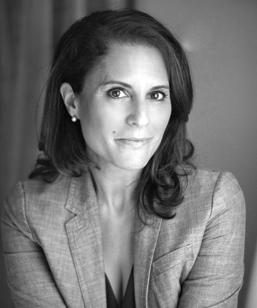Epictetus, the ancient Greek philosopher, is quoted as saying: “Remember that it is we who torment, we who make difficulties for ourselves—that is, our opinions do. What, for instance, does it mean to be insulted? Stand by a rock and insult it, and what have you accomplished? If someone responds to insult like a rock, what has the abuser gained with his invective?”
Wouldn’t it be wonderful if the words of others never affected us? We could plod forward, completely unaffected, as haters and doubters threw word bombs at our dreams. For many of us, that might seem impossible, even laughable. After all, we’re human. Words hurt, especially when they come from those we care about and respect the most.
The haters we don’t know, keyboard warriors and the like, are easier to ignore. You’re not personally acquainted with them and they don’t know you or your story. It might bug you for an hour or so, but that Instagram comment will soon slide to the bottom of your feed and your memory.
The unfortunate truth about haters is that the most difficult ones usually come from our inner circle.
The unfortunate truth about haters is that the most difficult ones usually come from our inner circle. The well-meaning, fearful parent who tells us that job security is everything. The skeptical investor who says your idea has been done before. The best friend who doesn’t seem to get it. They hold just enough power to make us wonder, What if they’re right?
If you’re struggling with haters in your circle, start with these steps and see how you feel after.
1. Consider the person.
Your parents grew up in a different time, economic climate and set of ideals. What might seem like sound business and life advice to them may no longer make sense. Plus, your parent wants to protect you. The advice they give could be based on feelings of fear rather than logic.
2. Set aside your ego.
Your business is your baby. You’ve spent an inordinate amount of time thinking, dreaming and planning. Any voice of opposition can feel like a punch to your self-esteem. Set aside your ego and consider what this person is saying. Does it make sense? Are they noticing something you’ve overlooked or is this simply a projection of their own fears or envy?
3. If necessary, ask clarifying questions.
Not all haters are spewing meaningless negativity. In fact, those who play devil’s advocate can be a great asset to an entrepreneur. For example, if the investor says your idea isn’t new or inventive, ask them which companies are doing something similar. Investigate and make notes of any similarities and differences. At the very least, you’ll know that you’ve considered various perspectives and are prepared for the what-if’s.
4. Adjust, and keep on keeping on.
If there is some truth in the message, you now have time to adjust what needs adjusting. If another company feels too similar in their product offering, you likely need a brand messaging shift, not a company overhaul. After all, no idea is new. The uniqueness comes from what you bring to that idea.
5. Be a rock.
If the negativity continues to flow, practice the words of Epictetus. You can’t change what people say or do, but you are in complete control of your response. If your impulse to react is too strong, consider limiting time with that person—at least until you’ve built up a rock foundation.
We asked three entrepreneurs about their experience with haters. Here’s what they had to say.

Violette de Ayala
Founder and CEO of FemCity, Miami, Florida
I know two things to be true when it comes to haters. First, the more successful you become, the more you will see them show up in your business and life. This is the reality of life and some cultures embrace this concept and philosophy. I was in Bali for work a few years ago and noticed many of the trees were wrapped in black-and-white checkered fabric. When I asked our guide, he said that in their culture they accept as there is good, there is bad, and as the good grows, so does the balance in the bad.
Second, when haters lash out, it’s really a representation of themselves. As you see others, you see yourself. The negativity generally comes from a deep disconnect to the way they live life, a lack of accountability and acknowledgement that we can all have success. My success doesn’t diminish the success they can attain. I also love the phrase, “What Sally says about Susan says more about Sally than Susan.” That is their story and their way of seeing their world.
When I get hate mail, haters or naysayers, I remove the personal attack and remind myself that it’s not about me, but about them. I then respond from a place of love and understanding. It generally diffuses the situation and closes that chapter. I don’t take it personally and never respond from an emotional side.

Andrea Wenburg
Author and CEO of Voice of Influence, Denver, Colorado
A few years ago, I felt a deep desire to contribute something bigger to the world, but I was holding back my voice out of fear of what others would think. After being inspired by Elsa in the movie Frozen, I decided it was time to “let it go,” which to me meant it was time to step up into what I felt called and capable to do. My primary goal is to help others find their Voice of Influence, but I continue to step more into the role of being a visible Voice of Influence, myself.
As I explain in my book UNFROZEN, “I used to believe that I was too much for others: too deep, too intense, and too sensitive…. My attempts to contain and control my self-expression left me feeling frustrated and inauthentic.
I knew I was made for more than a life of holding back, but how could I be me without ruining my relationships?”
Here’s what I advise:
- Friends and family are not your audience. Even if you wish to impact them with your message, if they feel targeted by you, they’ll often become defensive and closed off to you.
- Sometimes you have to sacrifice what you want for what you need. Ethical influence comes at a personal cost. You may lose relationships, but you have to decide what is more important: the mission or your own comfort.
- Love people more than you fear them. It’s time to decide if your mission is worth the sacrifice of their approval.

Denise Woodard
Founder and CEO of Partake, New York City, New York
My daughter, Vivian, was diagnosed with severe allergies, and I always struggled to find tasty and safe snacks for her. I once broke down in an airport after our flight was delayed for hours and I couldn’t find a single thing for my toddler to eat.
In 2016, I left a decade-long career at Coca-Cola to sell allergy-friendly cookies out of my car. My parents, who worked so hard to provide me with an education that would allow me to get a “secure, corporate job” were not excited. I handled it by:
- Understanding where they were coming from. My dad, as an African American entrepreneur, knows how all-consuming and hard the road is and wanted to protect me. My mom, a Korean immigrant, comes from a period and culture where entrepreneurship is not celebrated or glamorous, and she couldn’t understand why I’d leave a Fortune 100 company for the risk of my own.
- Forging my own path. Just because I understood where they were coming from didn’t mean I had to agree or listen.
As for the potential investors who thought “there’s plenty of allergy-free snacks,” I just continued to put myself out there and work to find partners who believed in what I was building. I kept my head down and did the work, and I believed in myself. I’m building a product that my own family so desperately needed, and in talking to our customers, I know we aren’t the only ones.
Partake eventually caught the attention of Jay-Z’s VC Fund Marcy Venture Partners and recently secured $1 million in funding. The story went viral and now you can find Partake products across hundreds of supermarket shelves nationwide.
This article originally appeared in the March/April 2020 issue of SUCCESS magazine.
Photo by GaudiLab/Shutterstock.com


